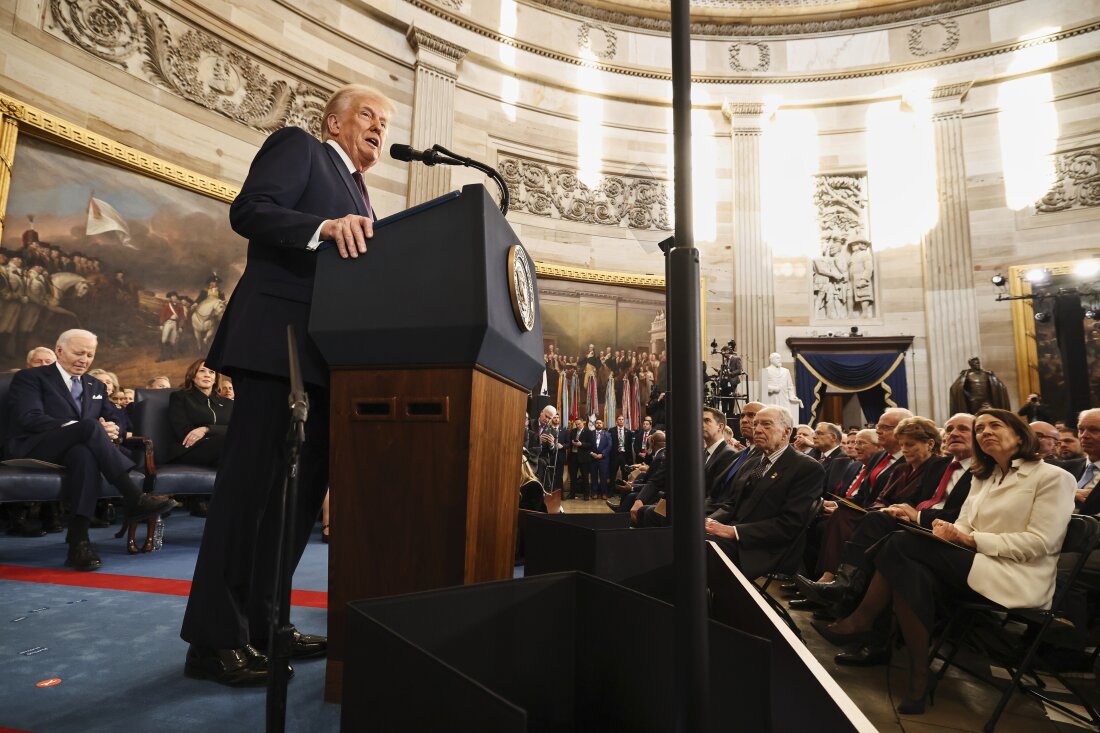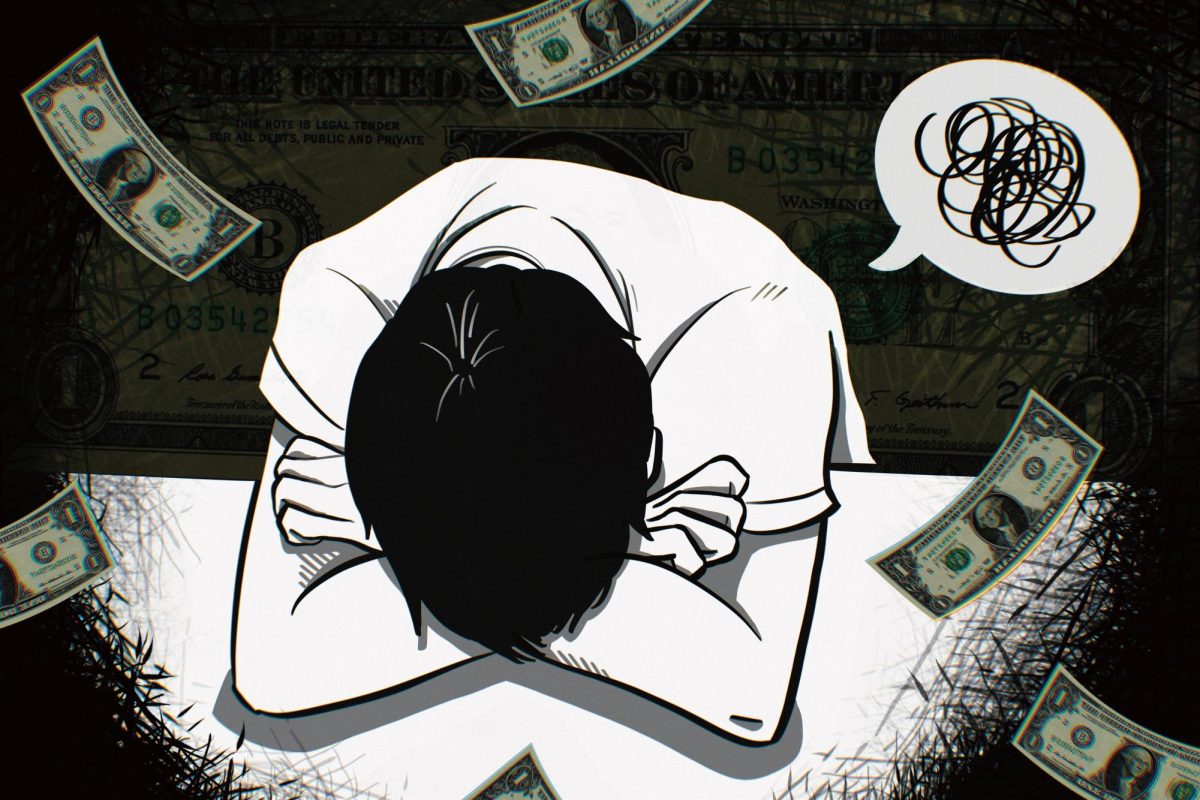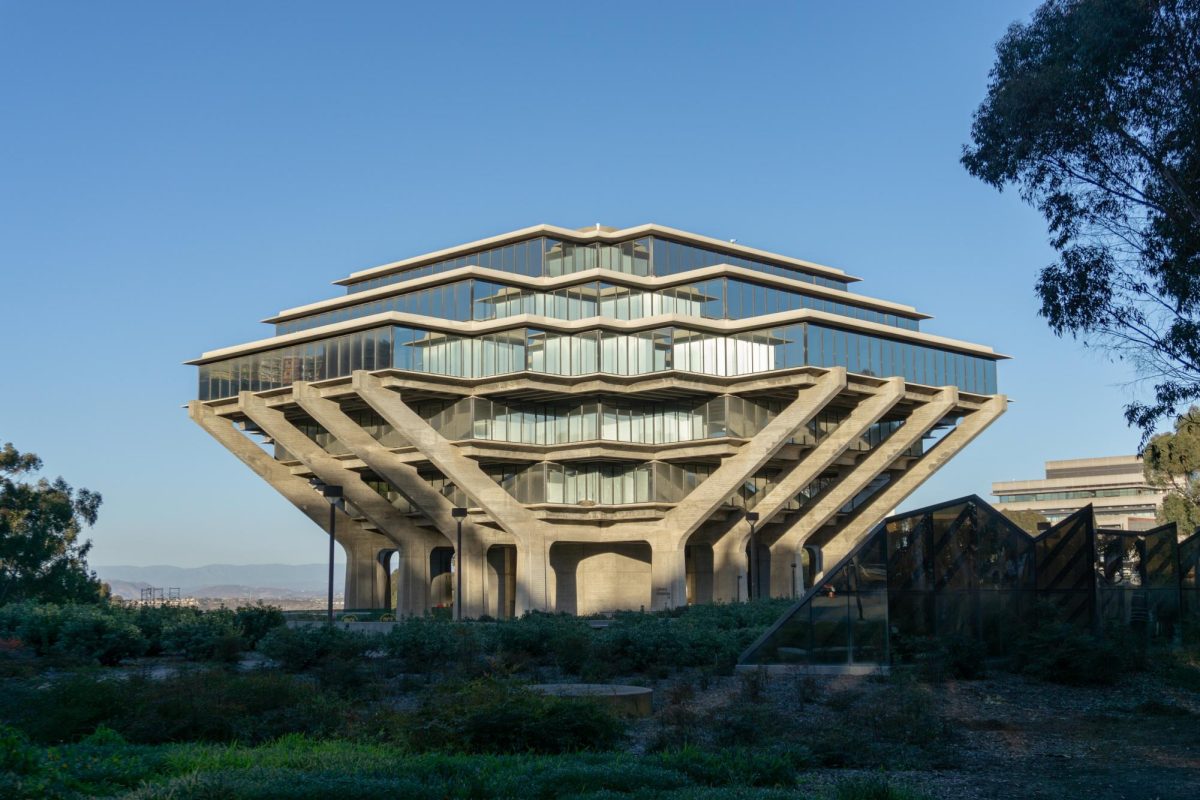This piece was submitted by Sunjay Muralitharan, a second-year Political Science Major at UC San Diego, National Vice President of College Democrats of America, California Democratic Party superdelegate, and a Presidential Candidate in this year’s Associated Students elections.
Fourteen percent, such minute numerals, denoted the turnout of the 2024 UC San Diego Associated Students (AS) elections. With such lackluster civic engagement, what was meant to be our student government has devolved into an entity reminiscent of a student organization, one where positions of power are granted to the greatest insider rather than the most capable candidate.
Within the contest, I ran on the New Generation Slate alongside Warren Senator Ivan Ramirez, the Senator with the greatest legislative achievements in AS history. My hope was to achieve dual synergy of an outsider perspective with insider knowledge with our specialized two-man team. And in the end, I came in third, narrowly missing the runoff by three votes and losing to the two most established candidates in the contest (current Executive Vice President Leslie Vallejo-Avila and current Off-Campus Senator Elizabeth Lopez). But throughout the campaign period, a myriad of perilous realities became evident, one’s that ensured outsiders like myself could only sit idly to the sidelines. A multitude of factors kept turnout low and voting camps limited, tilting the tides in the favor of those who already possessed incumbency advantage. More specifically, AS elections stand as an unscalable wall for the anti-establishment due to a triad of protruding flaws, our campus’s extensive civic apathy, present minimal preparation & publicity surrounding elections, and voting systems that favor those in power.
AS 2024 Election Results
When looking at this year’s election results, the aforementioned norm separated the winners and losers. Spanning the contest there were two dominant slates, Ascend and Campus Organizers Revitalizing Grassroots Initiatives; the first of which consisted only of present AS power brokers and those close to them, largely born out of the 2023 AS election slate Uplift. And as for the latter counterpart, such a group was made up primarily of AS outsiders with extensive external organizing and political experience.
Ascend defaulted on their strong suit, securing support from coalitions that already viewed them in a favorable light while simultaneously tapping into their extensive established network; such voter blocks include Students for Justice Palestine, Nueva Herencia, Jewish Voices for Peace and more. CORGI, however, lacked this luxury and opted to approach the campaign in the manner they knew best: organizing. I recall witnessing the slate tabling nearly every day with their corgi (Daniel’s dog Bella), urging students to come pet her, take a picture with the CORGI-themed backdrop, and fill out their ballots. In addition, CORGI posters, stickers, and other promotional materials riddled nearly every crevice of campus from parking structures to bathrooms. Simply put, this matchup was a clear faceoff between insider and outsider tactics and, as for the result, the latter group got the short end of the stick.
Within the nine contested institution-wide Senate seats Ascend won six to CORGIs two (the last seat was won by Nelly Zapato Castillo, an independent incumbent Campus-Wide senator). Additionally, within the convoluted race of Campus Wide senator, Ascend snagged four seats while CORGI failed to secure any.
As for the Presidential contest, a similar reality is evident, one mirroring dominance by current power brokers. The undisputed most established candidate, current Executive Vice President and top of the ticket for Ascend Leslie Vallejo-Avila, snagged 1,834 votes in the primary putting her at a comfortable first place prior to the runoffs. As for the runner-up, it was current Off-Campus Senator Elizabeth Lopez with 632 votes, an Independent candidate with robust establishment connections born out of her previous affiliation with Uplift; in 2023, Vallejo-Avila and Lopez had run together on the aforementioned slate. Trailing the top two was myself with 629 votes. And while I was the only candidate who lacked a current AS role, I derived my establishment ties from my running mate Ivan Ramirez. With his ties, I was able to tap into networks neither Lopez or Vallejo-Avila had access to, propelling me to striking distance of the runoff. In fourth place was former Associated Vice President Daniel Soria with 523 votes, CORGI’s presidential candidate who led the anti-establishment push; he had served in the prior year as AVP and currently possessed an obscure role within the AS External Office. And as for the final finisher, it was Director of Special Events Zane Quarni with 373 votes, a largely unconventional candidate who embodied outsider nature through his creative campaign materials that spanned free food to contraceptives.
Within the runoffs themselves Vallejo-Avila secured the presidency with 1,176 votes to Lopez’s 897 and within the successive contest, the former 14% voter turnout dropped to 7%.
As Civically Dead as Socially Dead
Indubitably, the greatest contributing factor to the low AS turnout is UCSD’s lackluster civic culture. Being a predominantly STEM school, the majority of the voting constituency is far more inclined to focus on their PAs rather than AS ballots. And it doesn’t help that most students simply don’t feel AS’s presence on campus outside of Reddit drama and Sun God.
Additionally, minimal information about AS is introduced to students as they enter UCSD. More specifically, our institution’s mandatory virtual orientation mentions no word about our on-campus governing body. Hence, unless students end up joining AS themselves, having a friend in the program, or stumbling upon an AS-hosted event, they may remain unaware of the Association as a whole.
As a result, outsider candidates struggle to mobilize new voters to the table. No matter how well thought out their policy platforms or effective their campaign tactics are, it’s nearly impossible to convince a student to participate in the campus civic process if they simply view it as pointless. On the other hand, established coalitions will consistently turn out in waves, due to tight bonds that’ve been formed long before campaign season. Resulting in easy victories for the establishment that require minimal campaign efforts.
And while UCSD’s lackluster civic engagement is a deeper systemic issue that a student government can’t hope to reform alone, there are active steps that can be taken to remedy it. Within our mandated virtual orientation, information that explains “What is AS?” as well as explicitly mentioning that AS runs on your student fees should receive a subsection at the very least. On top of that, it’s imperative we reach out to institutions who have had success in cultivating such a culture; an example of which being UC Berkeley, as their recent President-Elect, Shrinidhi Gopal, received a jaw-dropping 146,000 views on her campaign introduction video on Instagram. By learning tidbits of knowledge from schools that have successfully brought about such a culture, we can move the needle towards a more civically cohesive campus.
Minimal Publicity & Preparation
Accompanying the overarching issue of our civically dead campus is the minimal publicity and preparation surrounding elections. Currently, AS campaigning begins immediately in Week 1 of Spring Quarter, shortly followed by voting on the successive week; any discussion about one’s candidacy is prohibited prior to this point (with the exception of slate formation). Due to the sudden kickoff, minimal time is allocated to build up vital campus coalitions necessary to hype up the upcoming contests. Instead of reaching out to the Guardian, KSDT, the Triton, and other on-campus media networks for assistance, AS takes it upon itself to publicize most of the campaign, largely through emails, social media posts, and daily tabling. While these avenues are effective, AS is merely a facet of a cohesive campus community and can’t hope to publicize a campus-wide election on its own.
As a result, candidate debates and forums, which are meant to be marketed to our campus constituency as a whole, bear greater resemblance to an invite-only private forum primarily populated by AS officials and College Council members. I recall during the presidential debate overlooking a crowd of slightly over a hundred almost completely made up of members from the two aforementioned camps, as well as friends and slatemates of those on the stage. Nearly every audience member had already selected their candidate of choice, making a showstopping debate performance of minimal importance. Without events like these gaining traction through our campus’s network and an abrupt campaign period, students remain largely unaware of the election or even AS as a whole. Such was the realization of Sam Helvig, Sixth College Election Representative and fellow College Dem, during his timetabling for elections.
“Around 25% percent of the people I talked to didn’t know what AS was at all let alone that elections were even being held.” – Sam Helvig, Sixth College Election Representative
Standing on nearly even importance of minimal publicity is the lack of preparation. With campaigning kicking off as soon as Spring quarter commences candidates would need to prepare their materials during spring break or earlier to have them ready to go during this short time frame if they hope to reach the greatest number of prospective voters possible. However, this ideal hardly manifests into reality, as all campaign materials within the election need to be approved by the sole AS Election Manager, the same person who is tasked with spearheading election publicity and operations. With an undue burden falling onto one person, I found it difficult to pump out campaign material; Ivan and I had planned to print the bulk of our literature and flyers prior to the campaign kickoff, however, he ended up doing so midway through Week 1 as we had only received approval after the quarter had begun. Additionally, some of our posters didn’t end up receiving approval (or disapproval), resulting in meticulously crafted campaign materials failing to be used at all.
If Ivan and I, within our two person slate, struggled with garnering timely approval, one can only imagine the difficulties CORGI faced in their efforts to produce posters, business cards, social media content, wearable merchandise and more. And if, by an unprecedented twist of fate, they did manage to garner unilateral approval, candidates are only given two weeks to distribute their materials and make their case. Within such a time frame, amidst a hectic course schedule, Ivan and I struggled to execute our previously prepared plans, ranging from postering, meeting with club leadership and their general membership, establishing direct voter contact, hosting giveaways, etc. Ascend, however, with their robust connections that preceded the contest, had little worries in this regard.
Established AS electeds walk into election season with pre-developed organizational connections, granting them a significant advantage in a contest with a 14% turnout. As for those absent from the machine, they depend heavily on the two weeks of campaigning to gather new voters and form a competitive coalition to have a fighting chance. They’ve got to bring new voters to the table and form a competitive coalition in two weeks as opposed to their opponents’ months. Such a task, even for the most adept of organizers, is next to impossible.
Stemming from the systemic issues laid out above gives rise to a “chicken or the egg” problem of AS, one where outsiders are neither the chicken nor the egg. With outsiders, harboring new ideas with the potential to transform AS as we know it kept from winning big, the same niche establishment camp is shuttled in. Knowing that next year, if the status quo of AS elections remains, there is minimal motivation to actively fix the system and allow for the proliferation of diversity of thought; after all, why would a player of a game rigged in their favor want to rewrite the rules to lessen their chances of victory. As a result, the same out-of-touch insiders retain their hold, continuously focusing on internal bickering and antagonistic sentiment against those who don’t fit their establishment mold. We’ve seen it play out this year, with Uplift’s extensive efforts to impeach President George Lo (who had narrowly defeated Cristian Hernandez in the presidential contest of 2023) under grounds that were later deemed of questionable credibility by the AS judicial board. Time that could’ve been spent legislating in favor of the students went to a strong-armed attempt to oust the most prominent AS official who didn’t fall in line with the Uplift camp. With minimal tangible changes executed, students remained apathetic feeling that there was little reason to engage with a system that failed to positively impact their college experiences. And in the end, the Uplift leadership ran again with their creatively named sequel, Ascend, harboring the nearly exact same platform they had pitched a year prior with the backing of broadly similar groups as well as a few they had picked up in their time in power. With minimal students batting an eye to their clear failure to legislate in their favor, they were able to secure another year of dominance without actively serving UCSD’s campus community.
However, I’m a firm believer that mistakes are an inevitable facet of life; as long as the Ascend camp is willing to admit their mistakes of the past and actively work to harbor a fairer election timeline, one with greater campaign time and a later kick-off within the quarter, a greater staffed Elections management team, and commit to working alongside, rather than demonizing, their former opponents its possible for the issues of minimal preparation and publicity to be resolved. Especially when Vanna Hoang, Executive Vice President Elect and CORGIs only winning candidate in the executive contests, serves as the organization’s effective number two.
“I want to get rid of the nepotism within AS and give hope to those who want to join AS.” – Vanna Hoang Executive Vice President-Elect
In a united push, facilitated by Ascend alongside CORGIs minority and the largely independent College Council Senators, systemic reforms can come to fruition and end the cyclic problem of the chicken or the egg. But in their reforms, they’re going to have to look even further than the confines of preparation and publicity and hone into the voting system itself.
The absence of Rank Choice Voting
During last year’s election season, AS utilized a Rank Choice Voting system for their executive positions, allowing voters to rank each candidate in order of favorability. Once the votes had been tallied, each candidate would undergo successive rounds, eliminating the one with the least rank and redistributing those ballots to each of their opponents. By the end, the single candidate and collective favorite of the UCSD student body is elected. Presently, the system was replaced with a simple majority vote, to be followed by a runoff if no candidate garnered over 50% of the votes due to concerns that the present system was too costly. Personally, I find harboring fair elections to be well worth a higher bill, but it seems the present AS power brokers felt differently.
On the surface, the change seems insignificant; after all, single majority voting systems are the norm throughout our nation, commonly used in everything from Congressional races to student government. However, when we analyze the system more closely, it becomes apparent that the odds are once again stacked against the outsider.
RCV serves as a system that incentivizes voters to view what every candidate has to offer, rather than simply hyper-fixating on one. Consequently, every candidate is given some amount of consideration, even by the most ardent supporters of their opponents, allowing them to potentially win the contest without snagging the most rank one selections. Now, however, voters are given a singular option, granting the establishment a major advantage. Their greater initial visibility and coalitions are no longer forced to even consider anyone else, making the door of entry even tighter.
Furthermore, by adding successive runoffs, outsiders face another disadvantage. Mobilizing new voters to an election-dominated by apathy is hard enough once, but doing it twice is simply too much to ask for. As previously mentioned, primary to runoff turnout was halved for this very reason, specifically dropping from 14% to 7%. Those who will vote in both contests, however, are the pro-establishment coalitions granting them another advantage on their already hefty stack.
In this regard, it’s a simple fix, reimposing RCV as it’s well worth the cost if it means harboring fairer elections for all potential candidates. As I draft this, such a system is gaining ground throughout our nation, being implemented in contests as prestigious as the race for New York City mayor; and UCSD should be sure to join such a shift.
After having run a presidential campaign and deeply immersing myself in AS a year prior as a first-year fellow, I’ve come to view the governing body as one of limitless potential. As mentioned previously I had hoped to harbor the synergy of outsider and insider perspectives. Having the National Vice President of College Democrats of America and Warren Senator with the greatest legislative record of any past or present Senator join forces in favor of harboring a New Generation for AS, we had hoped that our dual understanding of external politics and internal AS affairs would fix the aforementioned problems and usher in a new era for AS. But now, as I sit on the sidelines after facing a narrow defeat in the runoff, I’m left to only hope that the establishment deviates from its internally focused efforts and primarily hone in on making the UCSD campus community a truly cohesive network where no one is left behind.








